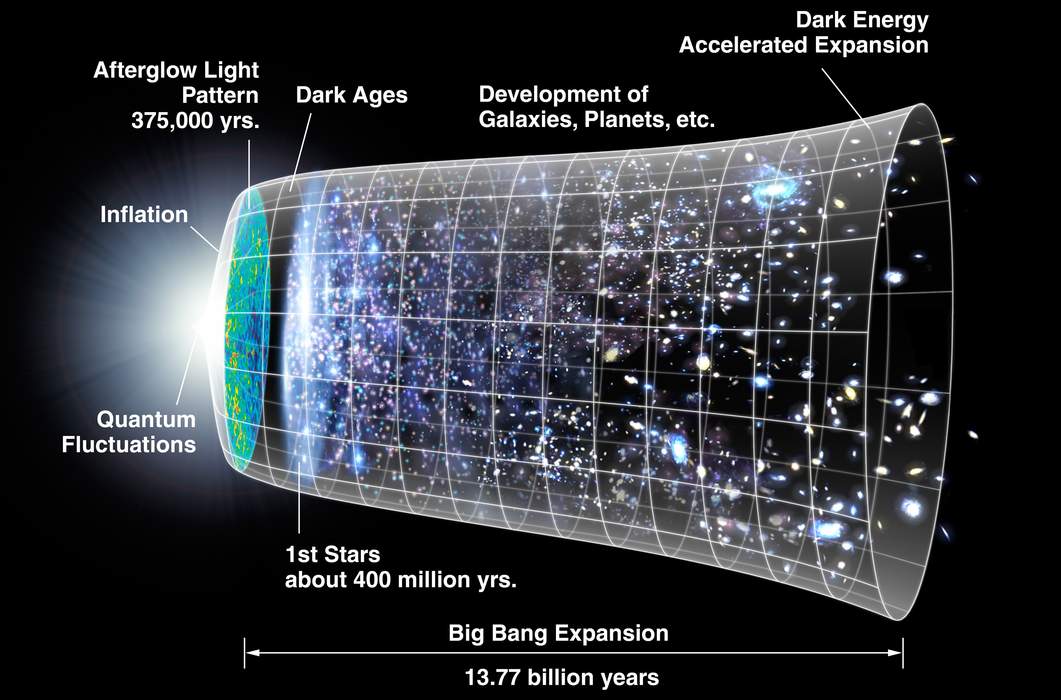Big Bang
Physical theory
Big Bang ▸ Facts ▸ Comments ▸ News ▸ Videos

The Big Bang is a physical theory that describes how the universe expanded from an initial state of high density and temperature. Various cosmological models based on the Big Bang concept explain a broad range of phenomena, including the abundance of light elements, the cosmic microwave background (CMB) radiation, and large-scale structure. The uniformity of the universe, known as the horizon and flatness problems, is explained through cosmic inflation: a phase of accelerated expansion during the earliest stages. A wide range of empirical evidence strongly favors the Big Bang event, which is now essentially universally accepted. Detailed measurements of the expansion rate of the universe place the Big Bang singularity at an estimated 13.787±0.02 billion years ago, which is considered the age of the universe.
| 0 shares | ShareTweetSavePostSend |
You Might Like
No news matches foundSorry, we were unable to find any results in our database for your queryFree news archive accessDid you know? You are eligible to search our news archive with millions of news references free of charge. To do this, please sign in first at the top of the screen. • Information about free access to our news archive Search this site and the web:  |
